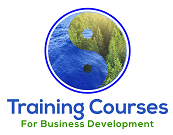 In the fast-paced and demanding corporate world, professionals often struggle with stress and decision-making, which can harm their well-being and productivity. As a result, personal development courses, executive coaching sessions, and power skills training have become increasingly popular among professionals seeking to improve their performance and overall quality of life. One essential component of these development efforts is mindfulness—a powerful tool for managing stress and making more informed decisions.
In the fast-paced and demanding corporate world, professionals often struggle with stress and decision-making, which can harm their well-being and productivity. As a result, personal development courses, executive coaching sessions, and power skills training have become increasingly popular among professionals seeking to improve their performance and overall quality of life. One essential component of these development efforts is mindfulness—a powerful tool for managing stress and making more informed decisions.
This article will explore the role of mindfulness in stress management and decision-making, offering practical strategies and real-life examples to help professionals integrate mindfulness into their daily lives.
The Importance of Mindfulness in the Workplace
Mindfulness, the practice of paying attention to the present moment nonjudgmentally, has gained significant traction in the corporate environment. Research has shown that mindfulness can reduce stress, enhance cognitive functioning, and improve emotional regulation—all of which are crucial for professionals striving to succeed in today’s competitive landscape. By incorporating mindfulness practices into professional development courses and executive coaching sessions, professionals can learn to navigate workplace challenges more effectively and make better decisions.
How Mindfulness Can Help Manage Stress
1. Enhanced Self-awareness: Mindfulness helps individuals become more aware of their thoughts, emotions, and bodily sensations. This heightened self-awareness enables professionals to recognize stressors early on and take proactive steps to address them.
Example: During a hectic day at work, a manager notices the tension in their shoulders and shortness of breath. Recognizing these stress signals, the manager takes a few minutes to practice mindful breathing, helping them relax and refocus on the task.
2. Improved Emotional Regulation: Mindfulness encourages individuals to observe their emotions without judgment, allowing them to respond more effectively to stressful situations.
Example: After receiving critical feedback from a colleague, an executive uses mindfulness techniques to acknowledge their feelings of disappointment without reacting defensively. This approach enables the executive to engage in constructive conversation and learn from the feedback.
3. Increased Resilience: Regular mindfulness practice has improved individuals’ ability to bounce back from setbacks and manage stress more effectively.
Example: A team leader who consistently engages in mindfulness exercises, such as meditation or yoga, notices that they can better cope with the challenges of their job and maintain a positive outlook even during difficult times.
The Impact of Mindfulness on Decision Making
1. Enhanced Focus and Clarity: Mindfulness practices can help professionals cultivate greater mental clarity and focus, enabling them to make more informed decisions.
Example: A project manager who regularly practices mindfulness finds it easier to prioritize tasks, allocate resources, and make tough decisions under pressure.
2. Reduced Cognitive Bias: Mindfulness can help individuals become more aware of cognitive biases that may influence their decision-making processes, such as confirmation bias or the sunk cost fallacy.
Example: An executive practicing mindfulness recognizes their tendency to favor information supporting their beliefs. By being aware of this bias, the executive can better evaluate new data and make more informed decisions objectively.
3. Increased Creativity and Innovation: Mindfulness has been linked to enhanced creativity and divergent thinking, essential for effective problem-solving and decision-making.
Example: During a brainstorming session, a marketing professional who engages in regular mindfulness practice comes up with several innovative ideas for a new campaign, drawing on their ability to think outside the box and approach problems from multiple perspectives.

Incorporating mindfulness into your daily routine as a professional can have significant benefits for both stress management and decision-making. In addition, by incorporating mindfulness into professional development courses, executive coaching sessions, or power skills training, individuals and organizations can benefit from a more focused, balanced, and effective workforce.
As the world of work continues to evolve, mindfulness will undoubtedly remain a powerful tool for professionals seeking to enhance their decision-making abilities and manage stress. By adopting a regular mindfulness practice, individuals can improve their professional lives and foster personal growth and well-being. So, take the first step towards a more mindful career today by exploring mindfulness techniques and reaping the benefits of this transformative practice.
HJK


